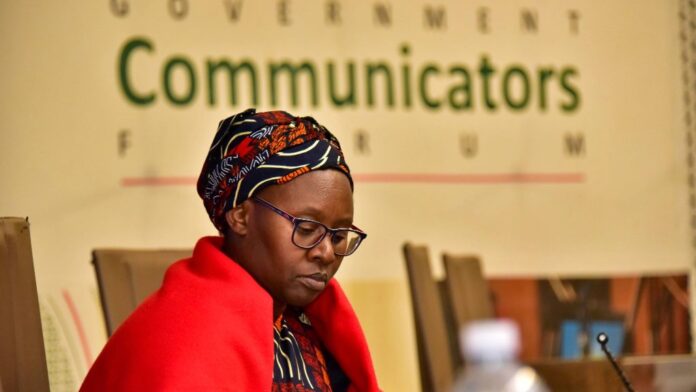The magnitude of the impact of misinformation is only truly felt when its’ effects have far-reaching consequences and are harmful to many. Classic cases that the world can relate to are the COVID pandemic or in some countries during national elections, when false information is rampantly peddled.
Closer to the home front today, South Africa is now confronted with the challenge of misinformation, misconceptions and complete misunderstandings of the newly enacted Land Expropriation Act, which was signed into law by President Cyril Ramaphosa on 23 January 2025.
It is deeply disturbing that an Act purposed for addressing historical injustices, advancing equality and reform has unfortunately been met with great criticism and scepticism as a result of being utterly misconstrued. The misinterpretations of the workings of the legislation have lately become a hot topic of contestation and great debate within our country and abroad.
False narratives have travelled within and beyond our borders, infiltrating the minds of global leaders and platforms who now also meet the Act with great reproval, due to exposure of skewed information and discussions.
It includes false assertions that the South Africa is treating certain groups of people unfairly. Such narratives are not only false but is also divisive. It hampers our efforts in advancing social cohesion and inclusivity and brings our country into disrepute. Furthermore, it completely ignores the real purpose of the Act which is to redress past imbalances as well as to level the playing field in terms of access to land.
Land grabbing or land confiscation, is one of the main misconceptions about the Act. Such misunderstandings can be attributed to deeply rooted fears associated with the apartheid era which limited land ownership to only a small population.
However, South Africa has evolved in leaps and bounds since 1994, with our democracy more solidified than ever before, led by a Government of National Unity that has the interest of all citizens at heart. Therefore, there is no need to fear as the truth remains that no land has ever been confiscated, and no land will be arbitrarily taken away.
Instead, the Act establishes a legal process of expropriation, which requires notice for acquiring a property, details of the state’s intention for use of the property as well as the payment of fair and equitable compensation. It ensures that justice prevails by making provisions for objections, along with submissions in this regard, and mediation through the courts. The Act encourages negotiations between the parties to reach a fair agreement, before any expropriation.
There are also many rumours about expropriation without compensation. However, the new legislation makes it clear that expropriation without compensation can only occur under exceptional circumstances such as: when the land or property is not utilised, abandoned or dilapidated, or when state subsidies were used to acquire the property.
Contrary to some misbeliefs, the Act does not empower government to immediately snatch land nor assume control of all land in the country as it is guided by several checks and balances, which is built upon international standards and best practices. Furthermore, the Act is firmly grounded in a legal framework that aligns with our constitutional democracy.
In accordance with our constitution, the Act seeks to prioritise the public interest, which includes land reform and equitable access. Opposed to some false implications, the law does not act as a tool to facilitate state interests but is actually a mechanism for advancing the public good.
The Act advocates for expropriation of property in the public interest or for the sake of public usage. It enables the government to acquire land, property or assets for programmes such as industrialisation, agricultural reform and infrastructure development. Such initiatives enable economic and employment opportunities that uplift lives and inevitably boost our national economy.
As the details of the Act are unpacked, it becomes clearer that the public interest has always been at the forefront of this legislation. Therefore, we urge all citizens to familiarise themselves with the content of the Act which aids in overcoming any misunderstandings. Government is also willing to educate citizens and engage with counterparts on this policy and clarify sections of the Act that may be concerning.
We are currently working with civil society, the media and various sectors to dispel misconceptions associated with the Expropriation Act. Government reassures all South Africans that the rights of all citizens are protected and that the needs of the public are always our number one priority.
Byline: Nomonde Mnukwa
Acting Director General: Government Communication and Information System


